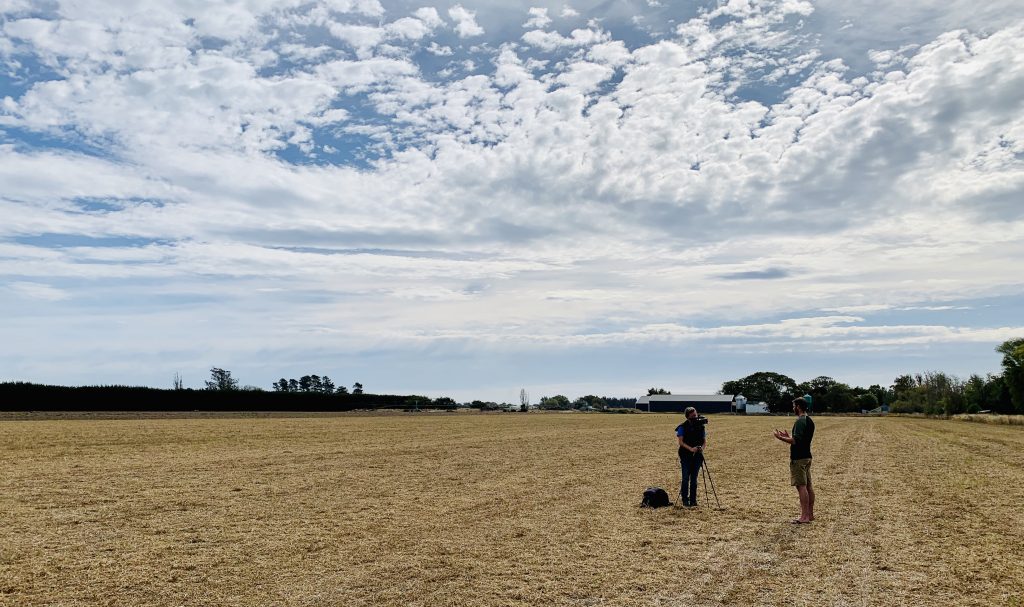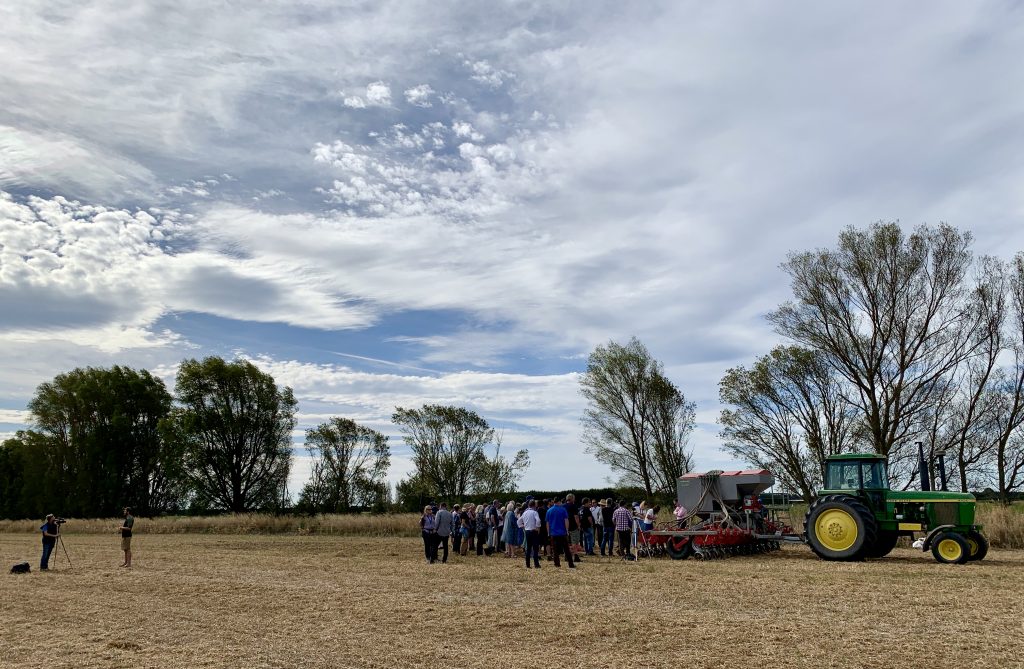How regen ag needs to engage all sectors of society to have maximum impact
One of the key barriers that Cerasela Stancu sees to the widespread uptake of regenerative agriculture (regen ag) practice in New Zealand is not a lack of willingness, awareness or practice, but rather the lack of measurement to support market distinguishing mechanisms to sort regeneratively produced foods from those that are not. With few exceptions, NZ farmers have limited ability to be recognised for, and capture the true value of their regenerative products. For this, they need to be able to demonstrate that their practices and products are regenerative.

Photo: @planetrumble
Originally from Romania, Cerasela has been working in New Zealand as a researcher and sustainability practitioner for over a decade. As the Sustainability Director at the advisory and impact project development firm EnviroStrat, Cerasela has become increasingly interested in land use economics in recent years, and the financial and environmental opportunities presented by regen ag and sustainable land management. EnviroStrat’s mission is to attract private capital towards projects that seek to solve complex environmental issues and achieve positive impact.
Working in tandem with market developer Buy Pure NZ, Cerasela is interested in helping farmers and landowners improve the land and helping them bring a better product to market – one that fetches a premium price and simultaneously provides for the costs of environmental and social remediation.
“You can’t just work at one end of supply change,
you have to work from land to market and across the food system.”
Cerasela has a good track record in helping leverage market mechanisms to ensure consumers have access to products with measurable and verified low environmental footprint. While working at Manaaki Whenua Landcare Research, she managed the Enviro-Mark programme and led its merger with the carboNZero certification programme to create Enviro-Mark Solutions (now Toitu Envirocare), a subsidiary of Manaaki Whenua Landcare Research. With a similar mindset to some of the other experts researched for this series, including organic entrepreneur Gary Hirschberg, and organic farmer Allan Richardson, Cerasela thinks that NZ needs a certification standard for both organic and regeneratively produced products to build trust with consumers and incentivise supply.
A reputable and widely recognised seal would be helpful in identifying premium products for both international and local markets. It is now all the more important for NZ to build upon its oft scrutinised clean, green reputation, harness the opportunity to capitalise on consumer trends in both China and the US towards healthy eating, and develop an economy around premium products that exemplify regenerative practices and approaches.

Photo: Nordwood Unsplash
In partnership with Buy Pure NZ and Āta, EnviroStrat recently undertook an assessment of Pukekaroro Station, to ascertain what outcomes for environmental, economic, social and cultural wellbeing could be gained by adopting regenerative practices across the sheep and beef farm. The property is owned and managed by Te Aupouri, and the iwi are interested in managing the farm in a way that both regenerates the land and upskills the people working it.
“There are a lot of synergies between the Māori worldview, and regenerative agriculture, so it was interesting to assess how we could combine principles of organic farming, regenerative agriculture and matauranga Māori to achieve outcomes for both the people and the land.”
Quick wins that were highlighted for the property include; an adoption of holistic grazing practices, increased diversity of fodder, the planting of shelterbelts, and the training of farm workers to start paying closer attention to what is happening in different habitats within the farm and let that inform stock movements, rather than relying on prescribed grazing schedules.
In the longer term, the recommendations include wetland restoration, afforestation that includes natives, diversification of livestock and a focus on helping develop a local economy for premium products. By nurturing local food economies and developing a robust culture of food sovereignty, Cerasela hopes that consumers can start connecting more to producers and know where their dinner comes from.
Cerasela is resolute about engaging a much wider circle than just farmers and consumers by being part of an emergent working group (including Pure Advantage) that aims to bring together diverse interests across society around a regenerative food system. There is an opportunity to supercharge the movement through a collective approach and attract not just farmers and academics, but also health practitioners and nutritionists, environment and conservation groups, community leaders, local food groups, urban farmers, government and industry representatives.
“We’re interested in bringing all the different parts of our food system together; it’s not just about the environment, but taking an integrated approach that involves health, community, education and building local resilience. Food is the great connector between people.”
It’s early days for the initiative, and there are expressions of what regenerative can mean taking place throughout NZ and internationally. Those involved are still considering the most opportune direction it can take, but together they hope the effort will act as a springboard for more conversations and actions about how we produce, market and consume food.

Photo: @planetrumble
Cerasela is encouraged by growing participation of government and industry bodies, and their increasing interest in regen ag, as a result of farmer-led movements. She said that they have shown more interest in recent years in helping to define and understand what regen ag looks like in the NZ context.
Government has a role to play in facilitating the transition for farmers who are interested in switching to regen ag, but don’t have the resources to do so. Cerasela often encounters farmers who are convinced of the case for regen ag, and are passionate about wanting to change. However, high levels of farm debt prevent farmers from pursuing the transition, as they cannot afford the lull in revenues that the switch can cause – particularly when the traditional way to finance agriculture is through intensification.

This story is part of a series called “Our Regenerative Future” produced in collaboration with Edmund Hillary Fellowship which investigates the current state of regenerative agriculture in New Zealand, and highlights future opportunities for the country’s primary production sector.
See Cerasela on Pure Advantage TV
Back To Our Regenerative Future
Alina Siegfried




Leave a comment